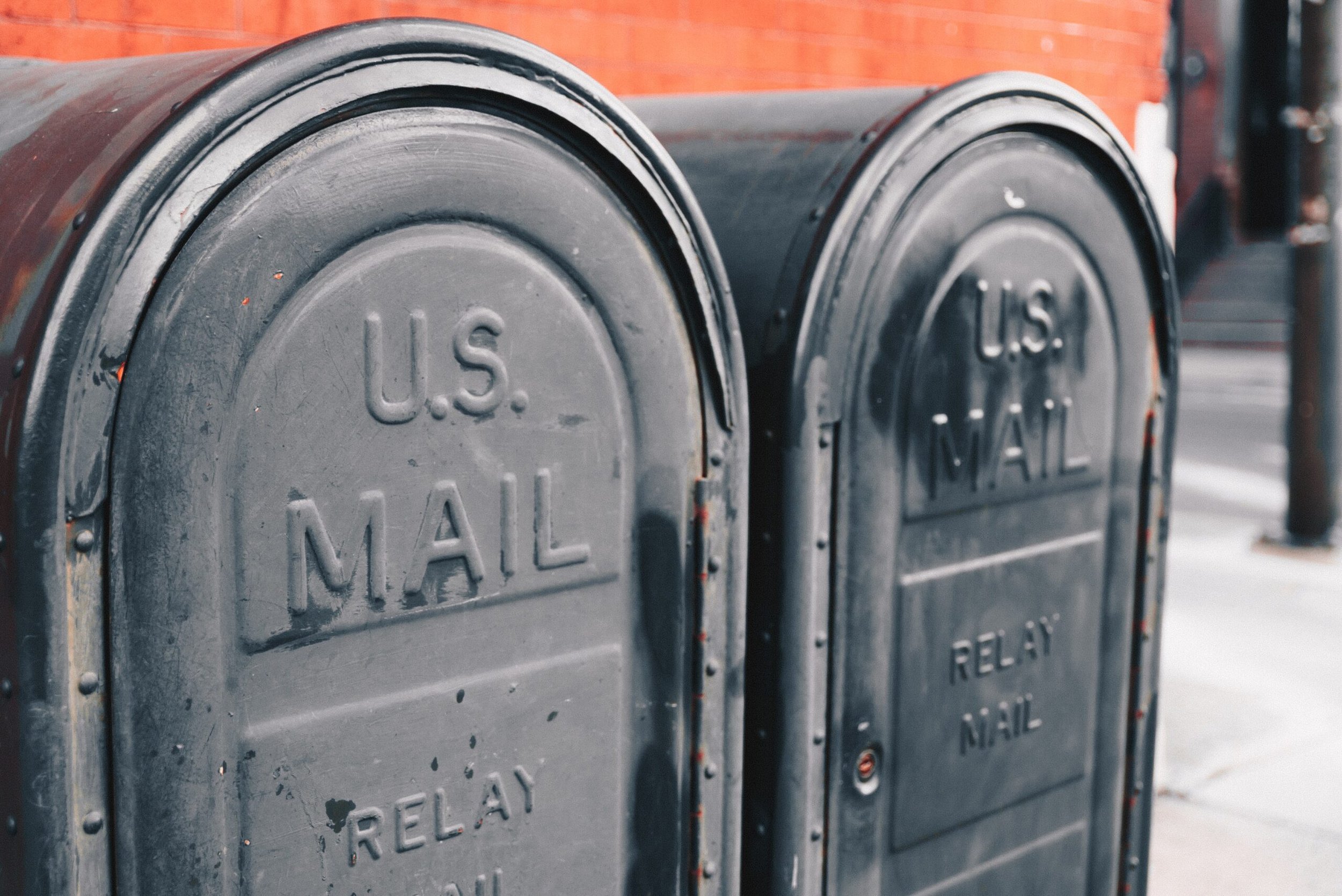Justice Catalyst Law Cases
Moerhl v National Association Realtors (2019)
In 2024, JCL and national firms Cohen Milstein Sellers & Toll PLLC (“Cohen Milstein”), Hagens Berman Sobol Shapiro LLP (“Hagens Berman”), and Handley Farah & Anderson (“HFA”), secured a ground-breaking resolution of the 2019 class action suit filed on the heels of a JCL investigation into the practices of the National Association of Realtors (NAR) and four national real estate brokerages for conspiring to require home sellers to pay for buyers’ brokers at an inflated commission in violation of federal antitrust law. A trial verdict in one of the group of cases spurred the 2024 settlement heralded as “prompt[ing] one of the biggest transformations to the housing market since New Deal-era regulations were put in place”, with defendants agreeing to pay $980 million to the nationwide class and abandoning the nationwide industry rules that suppressed competition and inflated housing costs for millions of Americans. Moehrl v. National Association of Realtors, No. 1:19-cv-01610 (N.D. Ill. March 6, 2019)
In Re California Bail Bond Antritrust Litigation (2019)
In January 2019, after more than a year of investigation by JCL, the National Consumer Law Center, Public Counsel, Towards Justice, JCL and national law firm Lieff Cabraser, filed a first-of-its-kind class action lawsuit alleging that an antitrust conspiracy among companies offering commercial bail bonds unlawfully fixed the prices of the bond premiums since at least 2004, to the detriment of California’s most vulnerable citizens and the justice system itself. The class of plaintiffs allege that surety cartel operated by Defendants overpriced bail bonds, harming thousands of Californians, including people who were arrested but never charged, and family members who paid the inflated price to secure the release of their loved ones. The lawsuit explains that the scheme to inflate the price of commercial bail perpetuates an unfair system that entraps heavily-policed California communities in harmful cycles of poverty and consumer debt. In re California Bail Bond Antitrust Litigation, No. 4:19-cv-00717-JST (N.D. Cal. March 8, 2019).
The Alabama Solution is Modern-Day Slavery
On December 12, 2023, after more than a year of investigation by JCL, JCL and private firm Altshuler Berzon LLP filed a class action challenge to a “modern-day form of slavery” run by the State of Alabama and national private employers that disproportionally traps Black Alabamians into a forced labor scheme. Plaintiffs brought this novel challenge under the Ku Klux Klan (“KKK”) Act, the Trafficking Victims Protection Act, the Racketeer Influenced and Corrupt Organizations Act (“RICO”), and related federal civil rights laws. The class action suit challenges systemic unconstitutional over-detention on behalf of a class of incarcerated Alabamians, resulting from the impermissible racial skewing and operation of Alabama’s parole board as well as state policies requiring incarcerated people to work under threat of grave physical harm. The plaintiffs include the country’s largest unions as plaintiffs, and the case seeks to dismantle the forced labor scheme and secure the immediate reform of the state’s parole system to comply with constitutional requirements. Council et al. v. Ivey et al., No, No. 2:23-cv-00712-CLM-JTA (M.D. Alabama December 12, 2023).
In Re Real Page, Inc., Rental Software Antitrust Litigation (2022)
In October 2022, after a year-long investigation conducted by JCL, national private firms Hausfeld, Berger Montague, Lieff Cabraser, and JCL filed a national federal antitrust class action against RealPage, Inc. (“RealPage”) and several of RealPage’s property management clients alleging that they coordinated to drive rents up to unprecedented levels, exacerbating the nation's affordable housing crisis. The complaint asserts that Defendants conspired to use RealPage’s “revenue management” service to set rental prices and restrict the supply of available rental units in major metropolitan areas across the United States. Plaintiffs contend that by using this conspiracy to stifle competition, Defendants inflated rents to supra-competitive levels and unlawfully suppressed the supply of rental residential housing, injuring the plaintiffs and thousands of renters across the country. In re Real Page, Inc.,Rental Software Antitrust Litigation (No. II), MDL No. 3071.
Academic Journal Publishers Antitrust Litigation (2024)
In September 2024, on the heels of a year-long investigation by Justice Catalyst Law (“JCL”), Lieff Cabraser Heimann & Bernstein, LLP (“Lieff Cabraser”) and JCL filed a federal antitrust lawsuit against six commercial publishers of academic journals, including Elsevier B.V., John Wiley & Sons, Wolters Kluwer NV, and the International Association of Scientific, Technical and Medical Publishers (STM), on behalf of a putative class of scientists and scholars who allege that these six publishers of peer-reviewed scholarly journals conspired to unlawfully appropriate billions of dollars that would otherwise have funded scientific research. The suit explains that this scheme has resulted in a variety of perverse market failures that impair the ability of scientists to do their jobs and slow dramatically the pace of scientific progress, delaying advances across all fields of research, from finding effective treatments for cancer, to advances in quantum computing, to finding solutions to combat climate change. The lawsuit, filed in federal district court in New York, seeks treble damages and injunctive and other relief, including an order to enjoin the defendants from continuing to violate the law by requiring them to dissolve the challenged unlawful agreements. Uddin et al v. Elsevier, B.V. et al., Case No. 1:24-cv-06409-HG (E.D.N.Y Sept. 12, 2024).
Dunn v. Cuyahoga County (2023)
In 2023, JCL, Hughes Socol Piers Resnick Dym (HSPRD), and the Law Office of Dami Animashaun filed a class action lawsuit challenging the systemic practice of Cuyahoga County, Ohio, of over-detaining people in its jail for as many as 56 days after the legal basis for their pretrial detention had ended. In this lawsuit, the plaintiff class seeks relief for violations of the Fourteenth Amendment by Cuyahoga County, one of the largest and most populous counties in Ohio, which have continued now for more than two years, despite repeatedly receiving letters from the Cleveland Division of Police notifying it of its unlawful over-detention practice. a. Dunn v. Cuyahoga County, No. 1:23-cv-00364-BMB (N.D. OH. February 23, 2023).
Brooks et al. v. Thomson Reuters Corp (2021)
On October 11, 2024, the plaintiff class secured preliminary approval of a $27.5 million class action settlement against Thomson Reuters (“TR Clear”), a media and data company, of a December 2020 class action lawsuit filed by JCL, the Surveillance Technology Oversight Project (“STOP”), and private law firms Gupta Wessler PLLC and the Gibbs Law Group LLP, for violating California privacy laws by harvesting the public and non-public private information of millions of California residents’ to create, and then sell without their consent, detailed profiles to commercial and government entities through its “CLEAR” web portal. Under the $27.5 million settlement, Californians will receive money for the commercial use of their information and TR Clear agreed to implement systemic reforms to address the privacy harms prospectively. Brooks et al v. Thomas Reuters Corp. et al., No. 4:21-cv-1418 (N.D. Cal. Dec. 2020).
Tassinari v. The Salvation Army et. al. (2021)
In 2021, after many months of investigation by JCL involving locating and interviewing hundreds of unhoused people living with opioid disorder across the country, JCL and the Disability Rights Education and Defense Fund filed, and were later joined by private firm Althsuler Berzon as counsel, a class action against The Salvation Army for engaging in disability discrimination prohibited by the Rehabilitation Act by denying housing and services to people with opioid use disorder at its adult recovery centers. Tassinari v. The Salvation Army, No. 1:21-cv-10806 (D. Mass. May 14, 2021).
Albert, et al. v. GTL, et al. (2020)
In June 2020, again after an extensive investigation conducted by JCL, national firms Cohen Milstein, HFA, and JCL filed a class action antitrust and RICO lawsuit against Global Tel*Link Corp. (“GTL”), Securus Technologies, LLC (“Securus”), and 3Cinteractive Corp. (“3CI”) for charging unlawfully inflated prices for collect calls made by incarcerated individuals in jails and prisons throughout the United States. Specifically, the suit alleges that Defendants secretly fixed inflated prices for calls between prisoners and their family members, friends, attorneys, and others, while also repeatedly lying to local governments and their own customers about the costs of those calls as a way to charge inflated prices. The lawsuit alleges that Securus and GTL were able to charge these excessive “single call” prices by secretly agreeing to eliminate competition between them and to fix the same inflated “single call” prices to consumers in violation of the federal antitrust laws. To justify charging such high prices for “single calls,” GTL and Securus claimed, in communications with both governments and consumers, that most of the prices consisted of “transaction fees” paid to 3CI to implement the calls although, in fact, Securus and GTL paid 3CI a mere fraction of the supposed “transaction fees” and secretly pocketed the difference, in violation of RICO. The lawsuit seeks to prevent the defendants from continuing their unlawful misconduct and to recover financial damages for the classes of purchasers. a. Albert et al v. Global Tel*Link Corp. et al, Civil Action No. 8:20-cv-01936 (U.S. District Court for Maryland).
Fusion Elite All Stars v. Varsity Brands et al. (2020)
In April 2023, JCL and national firms Berger Montague and Cuneo Gilbert and LaDuca (“CDL”) secured a resolution of $43.5 million in damages and sweeping injunctive relief for claims brought by the 2020 lawsuit filed by a plaintiff class of cheerleading gyms against Varsity Brands and the U.S. All Star Federation (USASF). In this action, filed after JCL’s extensive nationwide investigation, plaintiffs sought redress for nationwide violations of the Sherman Antitrust Act, including defendants buying and shutting down its rivals in the All-Star cheer business to gain market dominance, and then using that market dominance to impose predatory contracts on All-Star gyms, requiring near exclusive patronage of Varsity’s products and services. In addition to the sizeable damages resolution, the settlement unwound the key monopolization conduct for All Star cheer events in the United States. Fusion Elite All Stars v. Varsity Brands, LLC, No. 2:20-cv-02600-SHL-cgc (W.D. Tenn 2020).
S.C. et al. v. Calkins et al. (2024)
In 2024, again after nearly a year-long investigation by JCL, private firm Kaplan & Grady and JCL filed a class action lawsuit on behalf of a class of elementary school children and their parents across the Commonwealth challenging the deceptive and fraudulent marketing and sale of faulty literacy curricula that have undermined the future of students across the Commonwealth. The lawsuit seeks substantial relief from the publishers and authors of discredited literacy products to which generations of students and families across Massachusetts were exposed to, and harmed by, due to defendants’ deceptive marketing and failure to warn Commonwealth school districts that their products were unfit for use in teaching literacy. The suit exposed that by 2023, due largely to the peddling of these unfit products into Massachusetts, less than half of all third-graders in the Commonwealth met expectations for the Massachusetts Comprehensive Assessment System (MCAS) English Language Arts Exam, and as reported by the Boston Globe, “roughly 70 percent of Black third-graders, 80 percent of Latino students, and 85 percent of children with disabilities did not meet the state’s benchmark.” S.C. et al. v. Calkins et al., No. 1:25-cv-10007-RGS (D.Mass 2024).
Camarlinghi v. Santa Clara County (2020)
In December 2022, JCL’s counsel team secured approval for a $2.375 million settlement of a 2020 class action filed against the County of Santa Clara, California, for violating the 14th Amendment to the U.S. Constitution by systematically detaining people for more than 12 hours after the District Attorney decided not to prosecute them. The suit secured groundbreaking relief for constitutional over-detention, securing damages for class members at a rate of $250 or more per hour of over-detention. a. Camarlinghi v. Santa Clara County, No. 21-cv-03020-EJD(LB)(N.D.CA 2020).
Robinson v. National Student Clearinghouse (2019)
In April 2019, after an investigation conducted by JCL with the National Consumer Law Center (“NCLC”), JCL and NCLC filed a national class action against the National Student Clearinghouse for alleging violating the Fair Credit Reporting Act (“FCRA”) by overcharging for self-verification reports by $2.95 or $2.45 beyond the maximum set for self-verification reports by the FRCA. Immediately after filing, the parties entered into mediation, successfully reaching a resolution that created a $1.9 million settlement fund and NSC agreeing to limit self-verification charges to the statutory maximum moving forward. After approval of the settlement in January 2020 by the District Court, the First Circuit unanimously confirmed in 2021 the district court’s order approving the class settlement. Robinson v. Nat’l Student Clearinghouse, No. 1:19-cv-10749 (D.Mass. 2019); see also Robinson v. Nat’l Student Clearinghouse, Robinson v. Nat'l Student Clearinghouse, No. 20-1783 (1st Cir. Sep. 17, 2021) (affirming class settlement).
Peña v. Wells Fargo Bank, N.A. (2019)
In 2020, the Mexican American Legal Defense and Education Fund (“MALDEF”), Outten & Golden LLP (O&G), and JCL secured a successful resolution of class claims filed in 2020 against Wells Fargo for violating the Fair Credit Reporting Act by discriminating against a nationwide class of DACA recipients. In this resolution, plaintiffs secured damage payments up to $19.6 million and changes in lending policies to provide consumer lending products to DACA recipients. Peña v. Wells Fargo, No. 3:19-cv-04065-MMC (N.D. Ca. Sept. 27, 2019).
Green et al. v. Massachusetts Department of Corrections et al. (2021)
After a year-long investigation by JCL, in 2021, people incarcerated in Massachusetts, represented by Justice Catalyst Law and BraunHagey Borden, filed two lawsuits, one in Massachusetts state court against the Massachusetts Department of Corrections (DOC) and one in federal court against Sirchie Acquisition Company, LLC (Sirchie), and Premier Biotech, Inc. (Premier), seeking to stop the DOC’s use of a defective and faulty drug test on attorney-client privileged mail and seeking damages and injunctive relief under Massachusetts’ Consumer Protection Act, Section 93A, from the defective tests manufactured and sold by Sirchie and Premier. DOC used these faulty tests on legal mail sent into DOC facilities for years, including during the pandemic when mail was frequently the only means for attorneys to communicate with their clients. After plaintiffs secured a preliminary injunction from the state court barring the DOC from punishing any person based on a field drug test result until a confirmatory lab test was secured, DOC settled the case in late 2024, agreeing to change its policies statewide, implementing due process and other laboratory confirmation requirements, and abandoning the use of the disputed Sirchie tests statewide in early 2022. The federal case continues in litigation with the federal court rejecting Sirchie’s and Premier’s motions to dismiss in 2022. News about the lawsuit was recently featured in the Boston Globe, Vice, and The Marshall Project.” Green et al. v. Massachusetts Dept. of Corrections et al., Case No. 2184CV02283 (Suffolk Superior Court); Green et al. v. Sirchie Acquisitions et al, Case No. 1:21-cv-11504-GAO (JDH)(D. Mass. 2021).
Bodor v. Maximus Federal Services, Inc. (2020)
In 2023, JCL, the National Consumer Law Center and Flitter Milz, P.C. secured a resolution to their 2019 class action lawsuit against Maximus Federal Services, Inc. (Maximus), which alleged that the company engaged in illegal collection activity against thousands of federal student loan borrowers who submitted Borrower Defense to repayment claims to the U.S. Department of Education (Department). Plaintiffs secured their successful resolution after the presiding federal court denied defendants’ motions for summary judgment, finding that Maximus, the U.S. Department of Education’s largest student loan contractor, must comply with federal consumer protection law and, thus, plaintiffs’ claims on behalf of the victims of Defendants’ predatory and illegal debt collections practices would proceed to trial. Bodor v. Maximus Federal Services, Inc., No. 5:19-cv-05787-EGS (E.D. Penn. Dec. 9, 2019).
518.732.6703
Justice Catalyst Law is a registered 501(c)(3) organization
Terms of Use | Privacy Policy


















